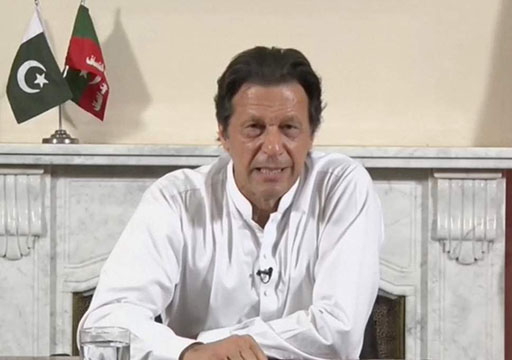ISLAMABAD (Reuters) – Pakistan’s likely new Prime Minister Imran Khan opened coalition talks with at least one smaller party and independent politicians on Saturday, a spokesman said, after the announcement of full results of an election disputed by rivals.
Khan’s party did better than expected to scoop up 16.86 million votes, trouncing the party of jailed former premier Nawaz Sharif, which finished second with 12.89 million and said on Saturday that a party member had been killed.
But the 116 seats won by Khan’s lawmakers were not enough to give him a majority in the 272-seat National Assembly without coalition partners, and he has ruled out both of the other two major parties, calling them corrupt.
Officials from Khan’s Pakistan Tehreek-e-Insaf (PTI), or Pakistan Movement for Justice, party said they were in talks with independents and at least one other political party to form a coalition government.
The poll has been marred by long delays in counting and complaints of rigging by the Pakistan Muslim League-Nawaz (PML-N) party. Some of the smaller religious parties are threatening street protests if the poll is not re-run.
PML-N leader Shehbaz Sharif said on Saturday that he was “outraged” by the killing of a party member in the northern city of Mansehra and that demanding a recount was a party’s legal right. He did not specify when the party member was killed.
“PML-N is a peaceful national political party and fear & intimidation can’t suppress our rights,” Sharif tweeted.
Khan has offered to investigate any claims of irregularities in the wake of Wednesday’s poll, which Sharif’s PML-N and several other parties allege was skewed in favor of the former cricket hero by Pakistan’s powerful military.
European Union observers were critical of the political climate in the run up to the vote, saying that some parties had been disadvantaged. In their preliminary findings, the observers said the electoral process was “not as good” as the 2013 election and campaign week featured a “lack of equality” that meant it was not a level playing field for all parties. The United States voiced similar concerns.
Khan’s 116 seats puts him short of the 137 required for an assembly majority, meaning he is likely to need a coalition with religious parties and independents to form a government.
Two newly formed small parties are seen as being open to an alliance with Khan’s PTI.
The Grand Democratic Alliance (GDA), a new alliance in Sindh province, has two seats.
The Balochistan Awami Party (BAP), another new group formed by a number of seasoned political names from the southwesterly Baluchistan province, picked up four seats.
The Election Commission of Pakistan (ECP) on Saturday released results for 270 seats, with elections in two seats postponed. Several were being recounted.
The coalition arithmetic is slightly complicated by the fact that a further 70 seats, most reserved for women and members of non-Muslim minorities, are allocated to parties on the basis of their performance in the contested constituencies. Once those seats are added in, any coalition will need at least 172 seats.










